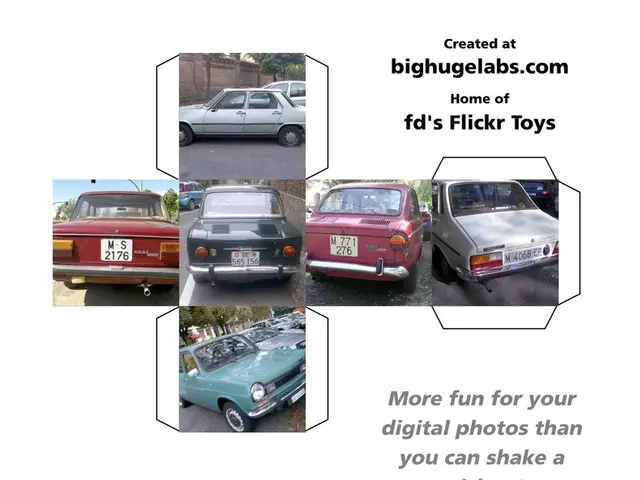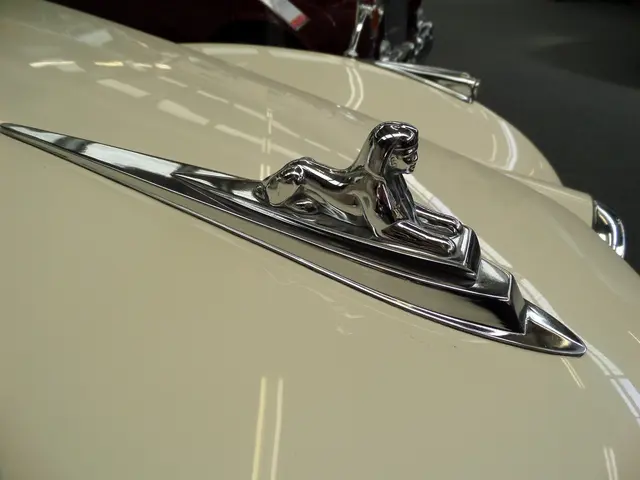Unveiling the Revamped Volkswagen Tiguan II: A Closer Look
Enhanced Second-Gen VW Tiguan Showcases Notable Improvements
Quick Share: Twitter Facebook WhatsApp Email Print Copy Link
The Volkswagen Tiguan has been a smash hit since its first appearance in 2007, and the second generation (2016-2023) has continued the tradition with even more improvements. Yet, a careful eye is recommended when considering 2016 and later models, as there are specific areas that potential buyers should be mindful of.
Quality and Reliability
The second generation of the VW Tiguan has shown positive results in the main inspections to date. Unlike its predecessor, the compact SUV commonly avoids issues during the suspension check. However, inspectors have noted an occasional rise in oil loss and increased brake disc wear.
Design and Space
At 4.49 meters, the five-seater Tiguan II is 6 cm longer than its forebear, leading to spacious accommodations in both the front and rear seats. The boot volume ranges from 600 to 1,655 liters and can be expanded further with the adjustable rear bench and seat backrest. The Allspace variant, a 4.70-meter long model, accommodates up to seven seats and offers a boot volume of 760 to 1,920 liters in five-seater mode and 230 to 1,775 liters in seven-seater mode.
Performance and Drivetrain
The initial petrol engines consisted of a 1.4-liter four-cylinder with 92 kW/125 PS and 110 kW/150 PS, a 2.0-liter with 132 kW/180 PS and 162 kW/220 PS, all of which featured standard all-wheel drive. The diesel engine options ranged from 85 kW/115 PS to 176 kW/240 PS, with all-wheel drive standard on all but the entry-level diesel models.
Due to changes in emissions standards, petrol engines were updated in 2018. The entry-level engine became a 1.5-liter four-cylinder with 96 kW/130 PS and 110 kW/150 PS, while the top 2.0-liter engine received a slight power boost to 169 kW/230 PS. The facelift also introduced a plug-in hybrid with a system output of 180 kW/245 PS and a new top version, the Tiguan R, with 235 kW/320 PS.
Equipment and Safety
Initially, the compact SUV was offered in the familiar comfort levels "Trendline," "Highline," and "Comfortline," but after the facelift, their names were changed to "Tiguan," "Life," "Elegance," and "R-Line." Additional features and options, such as a virtual cockpit and a trailer maneuvering assistant, were available at an additional cost. After the facelift, the new infotainment generation based on the Modular Infotainment Toolkit MIB3 and an expanded assistance system became available.
Potential Issues
While the Tiguan II is a well-regarded model, potential buyers should be aware of common issues:
- Engine Oil Consumption: Some models may have engines that consume excessive amounts of oil (class action lawsuits have been filed)[1][2].
- Transmission Issues: Reports of slipping or hesitation in the transmission have emerged[3].
- Interior and Electronics: Faulty infotainment systems, climate control issues, and other interior component problems are possible[3].
- Exterior Paint and Body: Some Volkswagen models have been known to have issues with exterior paint peeling or fading[4].
- Mechanical Issues: Keep an eye out for unusual noises, vibrations, water leaks, or electrical problems[4].
- Maintenance History: Ensure the vehicle has a complete and up-to-date maintenance history, including regular oil changes and any necessary repairs[4].
Conclusion
The second-generation Tiguan remains a successful vehicle for Volkswagen, boasting an understated design, successful spatial concept, and a diverse engine range. With approximately 8,000 used Tiguan II models currently available for purchase on mobile.de, starting at around 11,000 euros, it's now up to you to make a well-informed decision!
Source: ntv.de, Holger Holzer/sp-x
- Volkswagen Models
- Used Cars
[1] CarComplaints.com (2022). Volkswagen Tiguan. Retrieved from https://www.carcomplaints.com/Volkswagen/Tiguan/[2] Ammons Law Group (2022). Volkswagen Tiguan Oil Consumption Class Action Lawsuit. Retrieved from https://www.spencerlaw.com/volkswagen-tiguan-oil-consumption-lawsuit/[3] RepairPal (2022). Volkswagen Tiguan Reliability and Common Problems. Retrieved from https://www.repairpal.com/vehicle/Volkswagen/Tiguan[4] Edmunds (2022). Volkswagen Tiguan Used Car Review. Retrieved from https://www.edmunds.com/used/volkswagen/tiguan/reviews/
Other vehicles, not motorised, may offer unique and sustainable transportation alternatives for a lifestyle unbound by fuel and emissions, but for those favouring automotive cars, the revamped Volkswagen Tiguan II presents an appealing choice. The industry has been keen on the Tiguan II, with notable improvements in its design, performance, and safety features. Variants like the Allspace offer even more space for passengers and cargo. However, potential buyers must be mindful of certain issues, such as occasional engine oil consumption, transmission issues, and electronics faults, as documented in various reviews and class action lawsuits. A well-informed decision requires a thorough understanding of the vehicle's history, care, and maintenance needs.








